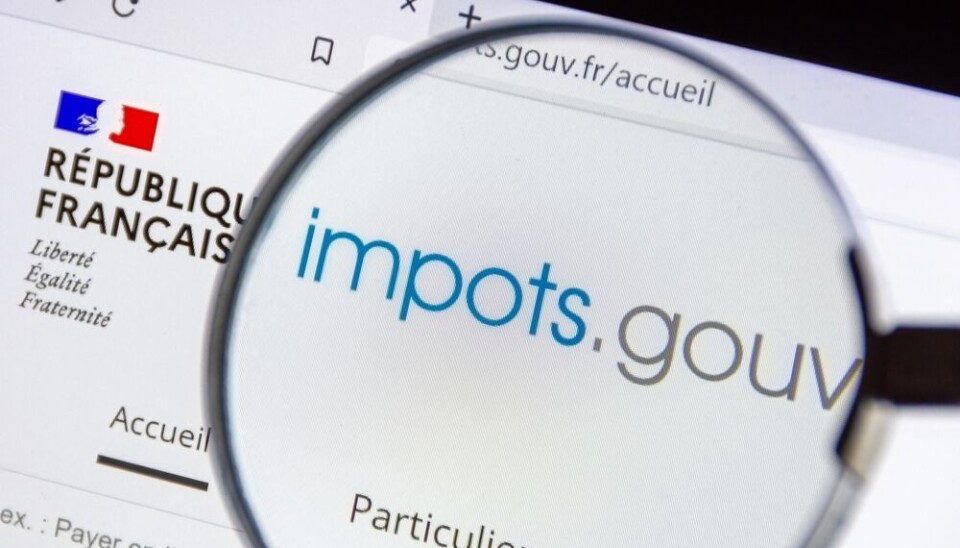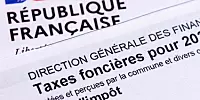French tax office to send reminder letters for missing property forms
Homeowners in France who did not complete a biens immobiliers declaration last year will get a chaser email or letter

TRENDING
Tax officials are sending reminder letters or emails to property owners who have not yet completed the obligatory biens immobiliers declaration.
This gives details of the property and how it is used, and all owners – including landlords – must now complete this.
Professional holiday lets subject only to CFE are exempted.
The deadline to do this – and in future years to ensure any changes are noted – is June 30.
Update the declaration if your housing situation changes
Once completed, the declaration needs updating only if circumstances change, such as a property sale or change of use from a main to second home.
Officials from the central tax authority DGFiP say about 82% of homeowners made a declaration last year: “As for those who didn’t, or who bought a new home last year, we’re sending out emails, or letters if we don’t have email addresses, to invite them to log on and declare.
“We hope to catch up with the remaining 18%. The other category concerned are those who declared last year but whose situation has since changed – for example, because a property they rented out has become their home.”
A paper form exists if you cannot declare online
The official reason given for this declaration is so tax centres ensure correct billing of taxe d’habitation on second homes or taxes on properties left unused and unfurnished.
In theory, the most important issue is to state how a property was occupied on January 1, 2024, which is used to calculate who is eligible to pay these taxes.
However, officials insist people should start to see updating the declaration as a “reflex”.
This year, a paper form has been sent to tax offices for people who cannot complete the process online.
Otherwise, as last year, the form should be completed via your space at impots.gouv.fr –click Biens immobiliers.
€150 fine per property can be levied for non-declaration
In many cases, it involves validating information the tax office already holds.
For those with French income declarations for 2023, there is also now a short questionnaire at the end of the online process for people known to be property owners here.
It asks if anything has changed between January 1, 2023, and the day of declaring and, if so, whether you have declared it.
If you have not, you will be invited to do so once the income declaration is signed off.
In theory, a €150 fine per property can be levied for non-declaration, but so far none has been levied as people get used to the system.
Further rises in taxe foncière property owners’ tax
Many people face further rises in taxe foncière property owners’ tax, which mayors partly blame on the end of taxe d’habitation on main homes.
This year, 2,200 extra communes were eligible to levy a surcharge on taxe d’habitation, should the local council choose to do so.
This can be from 5% to 60% extra on top of the tax.
A full list of communes that have voted to do this is not available but many “have rushed” to apply it, said a local authority finances analyst from Cabinet Michel Klopfter in Paris.
The new communes eligible for this are mostly in tourist areas along the Atlantic coast and in the south-east and Alps.
‘Very angry’ property owners
Sylvain Grataloup, president of the home-owners’ federation UNPI, said property owners are “very angry”.
He said they feel they carry the burden of local financing since the taxe d’habitation was abolished on main homes and is, therefore, no longer payable by tenants.
Taxe foncière is based on half of a property’s theoretical annual rental value (VLC), multiplied by council percentage rates.
VLCs are all revised up each year linked to a ‘harmonised’ consumer price index, which Unpi claims is higher than French inflation, as it is averaged out in the EU.
They think it should be linked to French rents, which have risen less.
“Taxe foncière is going up across the board due to the rise in properties’ VLC values by 3.9%,” said Mr Grataloup.
“So that’s the minimum, but the tendency for local mairie rates to rise [rather than stay stable or drop] continues again this year.
“Some cities have raised them by very significant amounts, such as Nancy, Nice and Villeurbanne.”
A 19% rise in the rates, and bills, in Nice was defended by the mayor as needed for public services because the rates had not risen there since 2009.
Toulouse and Paris are among areas where rates are stable, while Digne-les-Bains (Alpes-de-Haute-Provence) is lowering its rate by 2.4 percentage points.
Main way mayors can boost budgets
Mr Grataloup said one reason for rises is that councils feel this is the last chance to risk “unpopular” measures like this before the 2026 elections.
Another is that taxe foncière is now the main tool they can use to boost budgets, since taxe d’habitation on main homes was replaced by central state grants.
The Association des Maires de France says the grants are insufficient as they are based on 2017 population figures, while they face rising energy costs, higher salaries imposed by the state, greater demands for services, and obligations to carry out eco-friendly renovations.
Mr Grataloup said the biens immobiliers form is another bone of contention for owners.
“It’s not satisfying at all, because we don’t know what they will use the information for.
“I suppose to map out France to better measure what taxes they can levy here, there and everywhere.
“Owners do these declarations because they have no choice, because there are penalties [for not doing it], but we feel like we’re under constant scrutiny for what is essentially our own personal business as private sector owners.”


























